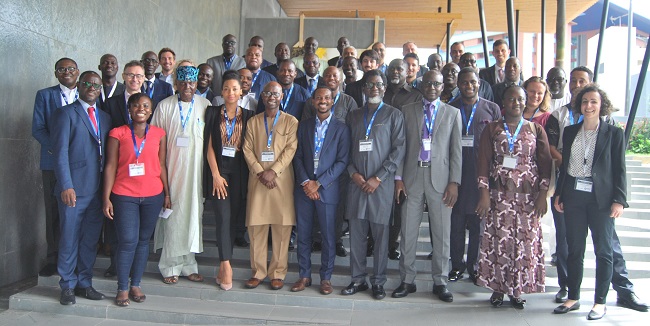Power sectors around the world are undergoing significant changes due to the rapid uptake of new renewable generating technologies both on a large scale and consumers side. One important thing is that we must keep ourselves updated in understanding their relevance to growth and development of Africa.

Innovation is the engine powering the global energy transformation and the pace of development and introduction of more efficient renewable technologies are accelerating.
Renewables are becoming the go-to option for many countries in their transformation towards a secure, effective and environmentally sustainable energy supply. Renewables underpin continued socio-economic development with jobs and local value creation while simultaneously combating climate change and its attendant consequences.
It is in the light of the above background that we need to review what efforts are being made in ensuring that we push for innovation and an industrial-driven Africa. The starting point should be to commend the efforts of the African Development Bank (AfDB) for putting in motion and implement its African Lighting Initiative that set out to see power as a major infrastructure in building a new Africa driven by innovation and technology.
The bank, along with a group of developers, investors and financing institutions under the platform of the Private Financing Advisory Network (PFAN) highlighted the efforts being made to drive the Africa lndustrial Revolution.
In its presentation at the Capacity Building and Partners Workshop, Mr Joan Cunha, Manager, Renewable Energy Initiatives at AfDB, stressed that energy is a major corporate priority of the bank. The AfDB, he said, has made lighting Africa its focus and the deployment of renewable energy as a major instrument for addressing climate change and job creation.
He added that Africa has a unique potential market with a diverse and fast evolving energy investment landscape, falling technology costs, energy business models enabled by mobile money revolution and economic growth, emerging middle class, industrialisation, and increased demand for energy, among others.
He enumerated some of the challenges in the the drive to widen the number of people with access to renewable energy and the business prospects.
These include: lack of well developed and bankable projects; access to finance including risk capital, debt instruments, local currency issues; policy and regulatory framework for providing a stable and favourable environment for investors and sustainability; lack of teaming together by businessmen and businesswomen; appropriate technology and the cost; and inadequate and qualified skill and manpower.
He enumerated efforts of the bank to addressing these challenges by turning them to opportunities. These include:
- Sustainable Energy Fund for Africa –This is “early stage” facility providing seed capital for renewables and technical support to policy makers.
- Preparation grants to support project development activities
- AfDB has pledged to commit $12 billion of its resources by 2020 ‘to leaverage another $50 billion
- Encouragement of investment in Private Equity Fund Managers for on-lending to investors
- The provision of $500 million as platform for small scale investors in renewable facility for energy inclusion
- Setting up of Green Mini Grid Help Desk at the bank
- Developing utilities through Sustainable Utility Facility Transformation
It is clear from various studies and available evidences that there is a need for innovation landscape for renewable powered future of which Africa in general and Nigeria in particular should address. There is a range of innovations that could not only accelerate renewable deployment to meet demand but could also help to ensure the transformation of Nigeria and Africa.
The efforts of the AfDB in fostering renewable energy innovation and deployment is commendable. This is in line with African countries economic, social and environment goals as well as the global climate and sustainable development goals.
By Prince Lekan Fadina
